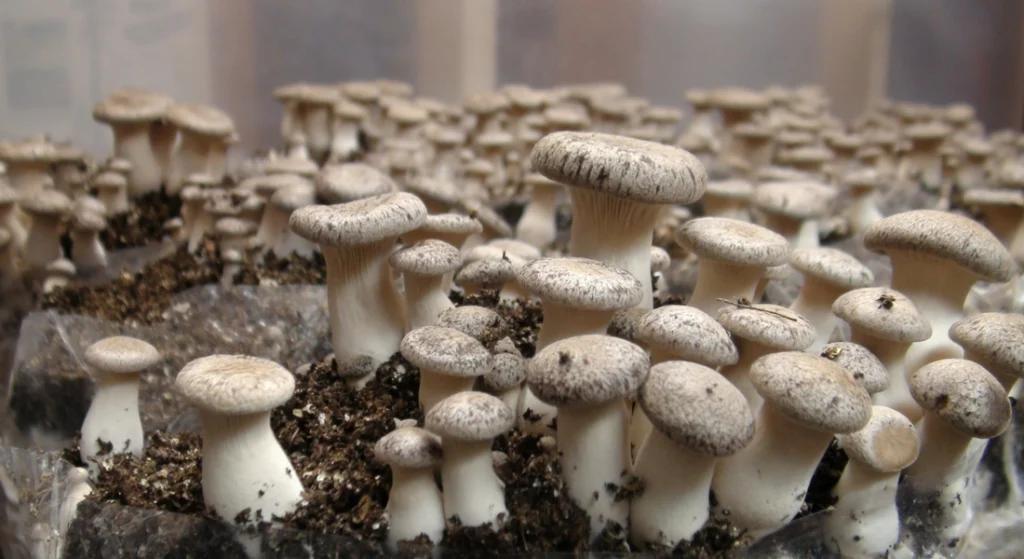Kenyan farm turns mushrooms into materials for eco homes

A large mushroom farm near Nairobi is producing mycelium for building materials that end up as fungi-based panels, which are more sustainable and affordable than traditional bricks. MycoTile, the company behind the innovation, combines mycelium — the root part of the mushroom — with natural fibers to create insulation and decor. The approach could help address Nairobi’s housing crisis where many live in informal settlements.
A mushroom farm, in Nairobi, Kenya is pioneering the use of fungi to make eco-friendly building materials, offering a sustainable solution to the country’s housing crisis, reported APnews via AFP on 19 October.
At the farm, workers cultivate mycelium, the root-like structure of mushrooms, on agricultural waste such as rice husks, maize cobs and sugarcane residue. As the mycelium grows, it binds the waste together, forming a solid, lightweight material. Once dried, it can be shaped into bricks or boards that can replace some conventional building materials.
A local company, MycoTile, uses the mycelium panels to produce building materials it says are more environmentally friendly than standard brick and mortar. The process also uses far less energy than making cement or steel, and the finished product is fully biodegradable.
Founder Mtamu Kililo, inspired during a research fellowship in Rwanda, began experimenting with mycelium in his kitchen. “The used substrates looked like brick, and I thought I could use those in the building industry,” said Kililo.
Supporters say fungi-based materials could help reduce waste, lower emissions, and make construction more affordable. Kenya’s building sector, like many around the world, contributes heavily to carbon emissions due to the energy required to produce cement.
The panels can serve as insulation, wall coverings and interior decor elements. MycoTile currently produces about 3,000 square meters of panels monthly and processes roughly 250 tons of agricultural waste each year.
Kenya faces a significant housing shortage, with an estimated deficit of at least 2 million units, particularly in urban areas like Nairobi. Traditional construction materials are often costly and environmentally taxing. MycoTile’s mycelium-based panels offer a more affordable and sustainable alternative.
Street vendor Jedidah Murugi, whose house was made with fungi-based construction materials, said she believes “there is no huge difference in the quality of the houses made from brick and these boards.”
“The only difference,” she said, is in the cost. Her house, she added, “is not cold at night and neither is it hot during the day.”
The panels also provide insulation and can be fire-resistant. “Mycelium is a natural insulator and fire retardant,” said Nickson Otieno, an architect and sustainability expert in Nairobi. “Construction is one of the major emitters, and using mycelium-based materials can help mitigate that.”
Kenyan authorities have recognized the potential of MycoTile’s innovation. The company has access to facilities at the Kenya Industrial Research and Development Institute in Nairobi, where it benefits from machinery and technical support. This collaboration aligns with the government’s efforts to decarbonize the construction sector and promote locally led innovation.
MycoTile is planning to expand its product line to include ceiling tiles, construction blocks and furniture. The company is also exploring partnerships across Africa, with potential to replicate the model in countries with abundant agricultural waste, such as in the Maghreb region.
While still at a pilot stage, the initiative demonstrates the potential of combining agriculture and innovation to create sustainable housing solutions.
APnews via AFP, Maghrebi.org
Want to chase the pulse of North Africa?
Subscribe to receive our FREE weekly PDF magazine










